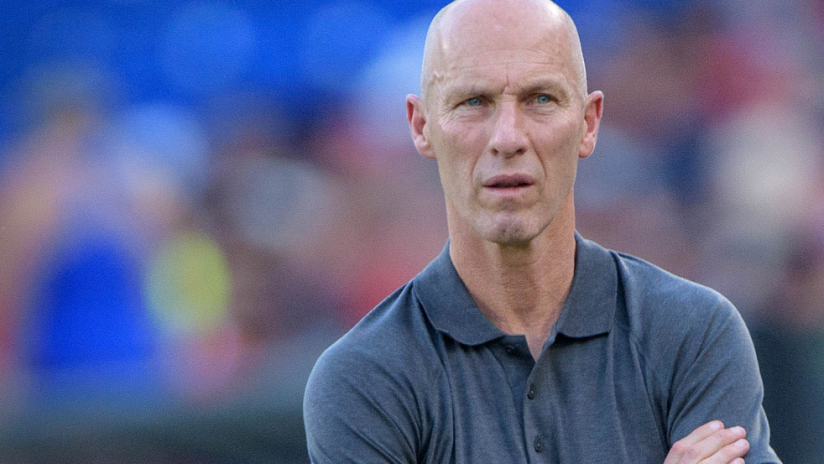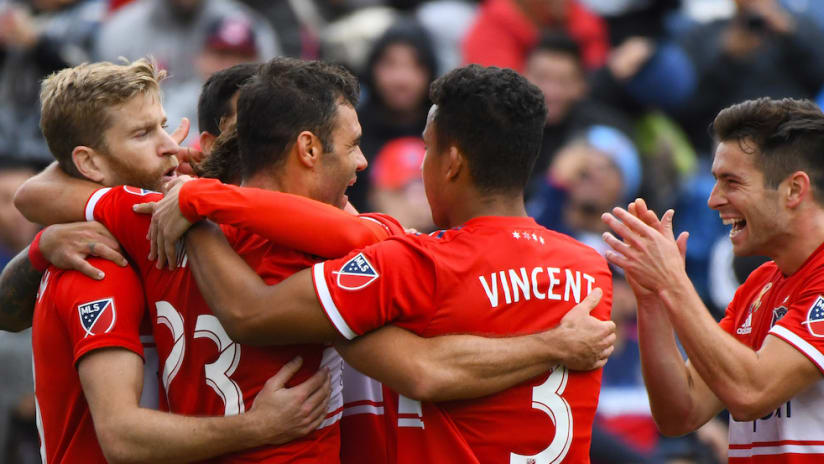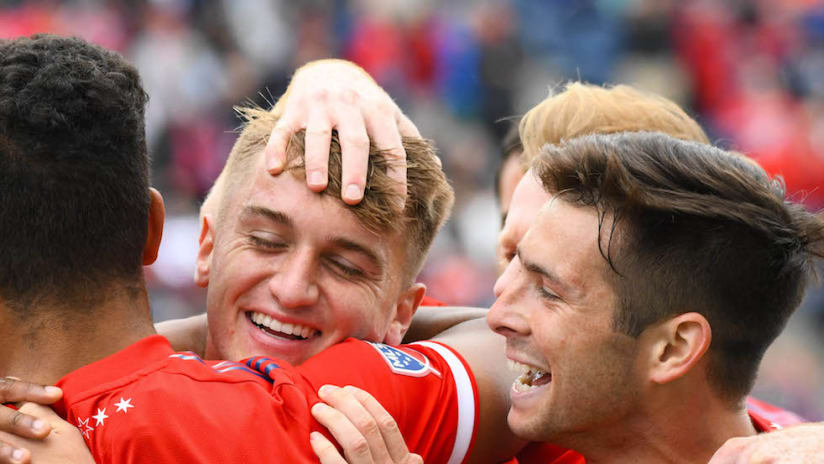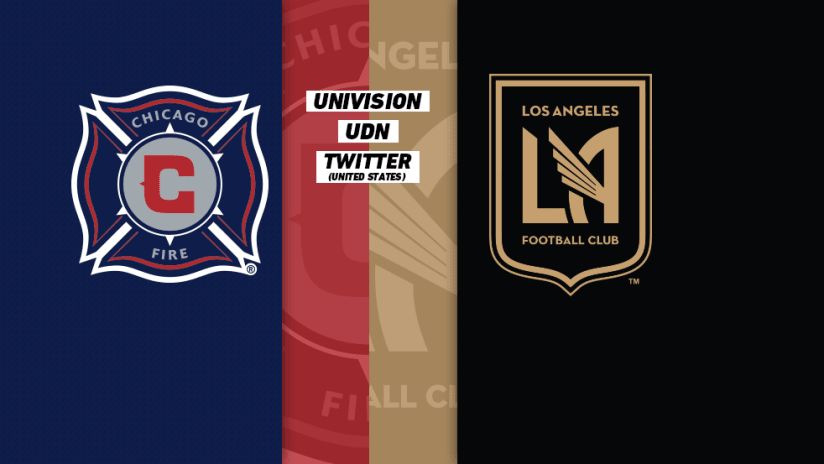Two decades after he led the Chicago Fire to the MLS Cup and U.S. Open Cup titles in their first season as a club, Bob Bradley is taking his new expansion team on their first trip to his old city this weekend.
Bradley and LAFC will meet the Fire at Toyota Park on Saturday (3:30 pm ET | Univision, Twitter — Full TV & streaming info), one month and one day short of the 20th anniversary of the Fire completing their historic double in 1998. The occasion has given Bradley a chance to both reflect on that historic Chicago team and compare it to his LAFC squad, which could all but officially lock up a playoff spot with a win this weekend.
“I think there’s totally similarities,” Bradley told MLSsoccer.com on Wednesday.
As he did with the Fire in 1998, Bradley is looking to make history with LAFC this season. The first-year club enter Saturday’s match in third-place in the West on 50 points, just six behind Chicago’s regular season total in 1998 and only five back of Atlanta’s post-shootout era record of 55 set last season. With five games remaining, it’s a pretty safe bet that LAFC, who are second in the league with 57 goals and fourth in MLS with a plus-14 goal differential, will take down that mark.
And while the MLS of 2018 operates in an entirely different world than the fledgling league it was in the late-90s, Bradley sees some parallels between his 1998 Chicago team and 2018 LAFC. Both teams strategically mixed established international and American veterans with hungry, talented young players; both built a quick connection with their communities and in their locker rooms; both stayed the course through several downturns, leading each to their own clear on-field identity.
“Two things [stick out to me when I think about 1998],” said Bradley. “The first is, from the beginning, we had an incredible connection with the city. The first signing was Peter Nowak, obviously the Polish-American community loved what that meant, just like what signing Carlos Vela meant [at LAFC]. It was a sign of also the football we wanted to play. We built a team that had a mix of experienced guys with some really motivated young, talented players, so that was special.”
Chicago were led that season by Nowak, his fellow Poles Roman Kosecki and Jerzy Podbrozny, Czech defender Lubos Kubik and Chicago-native and U.S. international Frank Klopas. The veteran group was joined by a cadre of talented young players that included midfielders Chris Armas and Jesse Marsch, defender C.J. Brown, striker Ante Razov, goalkeeper Zach Thornton and forward Josh Wolff, all of whom made major contributions that first season and all of whom – excluding Marsch, who left the New York Red Bulls this summer to take a job at RB Leipzig – are currently head or assistant coaches in MLS.
“So many of the guys that were part of that are still involved in the game,” said Bradley. “I think the experiences that we shared, what happened every day at Halas Hall in Lake Forest with the training, the competitiveness, the feeling at Soldier Field with the support we had, the football that we played, I think everybody remembers what that was all about. Whenever I cross paths with an of those guys, the stories of what went on, the feeling of what we were all about as a team and ultimately what we achieved, that part I think is something that we all share.”
LAFC isn’t an exact corollary to that Fire squad, but there is a resemblance. Experienced internationals like Vela and, prior to his transfer to French club Dijon, Laurent Ciman led the group, along with American veterans Benny Feilhaber, Lee Nguyen, Steven Beitashour and Jordan Harvey. They're pushed along by youngsters like star Diego Rossi, Designated PlayerAndre Horta and key contributors Eduard Atuesta, Latif Blessing and Tyler Miller. They may not have four (and counting) future MLS head coaches on their roster like the 1998 Fire, but there’s trust there, a sense of togetherness that reminds both Bradley and Klopas of their old Chicago team.
“Look at the players he has on the team, the guys that played in World Cup, guys with a lot of experience. It’s not easy managing those guys,” said Klopas, who coached Chicago and Montreal for parts of five seasons and is now the color commentator on the Fire’s local broadcasts. “But you can also see in that team that everybody plays for the group, there’s that circle of trust in their group. Nothing’s going to come in between them, and that was the same thing in ‘98 with us.”
There’s also an on-field identity, a hallmark of most of Bradley’s teams throughout his career. Having a clear idea of how you want to play and executing on it is especially important for a team in its first season, when things can quickly go sideways if there’s no defined foundation. Bradley, who Klopas said was “ahead of his time” in 1998 with his ability to communicate tactics and manage his players, had that lesson drilled home with that first Fire team. He didn’t yield to temptation to make major changes to his tactics during losing skids in Chicago, something he’s drawn on this year with LAFC.
That helped lead to a double for the Fire. It’ll be almost impossible to achieve that with LAFC, who are well back in the Supporters’ Shield race and lost in the U.S. Open Cup semifinals to eventual champions Houston, but they do have a solid shot at MLS Cup. If they win that title, Bradley might just have to reconsider his repeated stance that the 1998 Fire are the best expansion team in MLS history.












